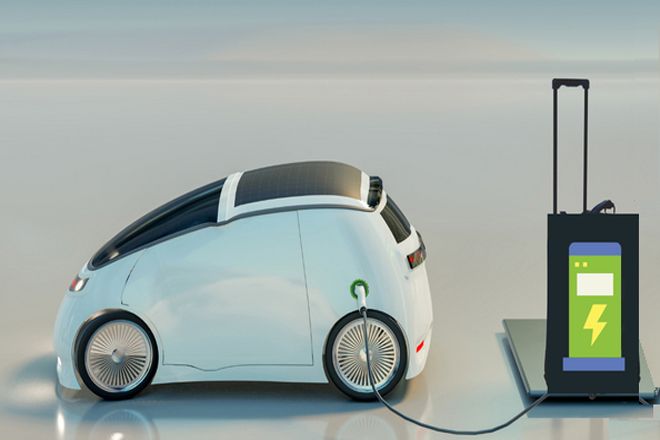EV chargers pave road to freedom
Life on the road is about to become less complicated thanks to the rise of portable charging solutions.

Electric vehicle powerbanks will let owners recharge wherever they park.
While most EV owners plug in at home by night, public charging stations (which are still few and far between) are the only option when out and about – until now.
Life on the road is about to become less complicated thanks to the development of portable EV-charger tech that plugs in at home and recharges when needed.
This type of tech promises to ease so called ‘range anxiety’ among EV owners, combats a lack of public charging infrastructure, and importantly, provides a solution for EV owners who live in apartments with no charging infrastructure.
Last year, US company SparkCharge launched Roadie, a mobile charging service which is based on a subscription model. Roadie is ordered via an app, Uber style, and is delivered via a service vehicle wherever it’s needed.
A UK startup called ZipCharge is preparing to launch its own version called Go next year. The suitcase-sized lithium-ion battery pack – which sports wheels and a retractable handle – was unveiled at COP26. Go can be plugged in at home and then used to charge the car when needed.
"We are committed to launching a truly ground-breaking product in the Go, one that meets the needs of a range of customer groups, and how they would like to use the Go."

Go provides around 30km of charge and has a 30-60 minute charge time, with a higher capacity version in the works to provide 60km of range. Users will be able to control and monitor the charging process, including scheduling future charges during off peak hours, using an app.
ZipCharge Go is expected to be leased for around US$67 per month, and will also be available for purchase, with pricing yet to be announced.
“Since our launch at COP26 in November last year, ZipCharge has received an unprecedented level of interest from potential customers around the world,” ZipCharge co-founder Jonathan Carrier says.
“We are committed to launching a truly ground-breaking product in the Go, one that meets the needs of a range of customer groups, and how they would like to use the Go.
“This includes private individuals, fleets and end-destinations, such as hotels, retail complexes, supermarkets and leisure activities – all locations where the ZipCharge Go can provide flexible, convenient and low-cost charging for everyone, anywhere they park.”
Carrier says final pricing would be confirmed later this year as part of the pre-order process.
“Our mission is to democratise EV charging, which means the ZipCharge Go will be competitively priced and comparable to the purchase and full installation cost of a fixed home charger.”
The tech
SparkCharge and ZipCharge portable EV charging technology both use lithium-ion battery packs. SparkCharge is accessed by users via a monthly subscription and can provide around 100km of charge. Users download an app called Currently and create an account to gain access to the mobile charging service. The SparkCharge comes in modules that can be connected to create a larger battery system with higher charging capacity. The Go from ZipCharge is portable, as it is suitcase-sized, and can be used when the car is parked. It can add 30 to 60km of charge depending on the model, and can be rented for about US$67 a month.
Who funds it
SparkCharge has raised nearly US$20 million through several fundraising rounds and its investors include Mark Cuban and Lori Greiner who came onboard after company execs presented to the CNBC show Shark Tank. ZipCharge was recently named as a finalist in this year’s QBE AcceliCITY Resilience Challenge which sees start-ups and entrepreneurs compete for USD$150,000 in prize funding.
Is it ready to roll
The SparkCharge Roadie was launched last year and is currently available in the US via an app subscription model.
ZipCharge recently announced that its product, Go, has advanced to the validation prototype stage, which is the final stage before mass production. It is due to be launched next year.





